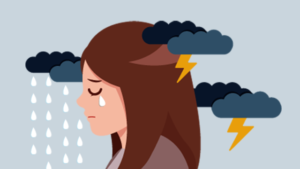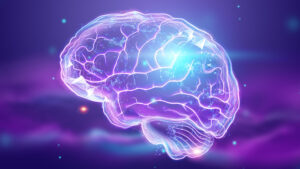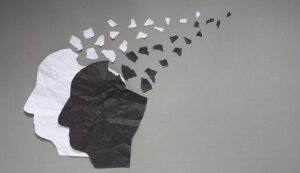Inside the Mind: Exploring the Frontiers of Psychiatry
Master the art of mental resilience with ‘Mental Mastery.’ Find strategies, insights, and inspiration to cultivate a strong and resilient mind in the face of life’s challenges
Hope and Support

share your story
We invite you to share your story with us. Whether you’ve experienced the challenges of addiction or mental health struggles, or have supported someone on their journey, your story can inspire hope and healing

Consultation
psychologists provide expert care to help individuals overcome addiction and mental health challenges, offering personalized treatment to support long-term recovery and well-being.

St-marry rehab
donations to provide essential treatment for patients struggling with addiction and mental health issues. Your support can help us offer life-changing care to those in need
RECENT POSTS

Emotional Distress Without Reason: Causes & Symptoms
Feeling emotionally distressed for no clear reason can be frightening, isolating, and deeply confusing. You may wake up with a heavy emotional weight, experience sudden sadness, irritability, fear, or emotional numbness, yet find no obvious explanation. When life appears “fine” on the outside, unexplained emotional distress can lead to self-doubt,

Mental Health Symptoms Without Depression:
When people hear the term mental health symptoms, they often assume it means depression. While depression is a common and serious mental health condition, it is far from the only way mental health struggles can show up. Many people experience anxiety, emotional dysregulation, chronic stress, irritability, sleep problems, concentration difficulties,

Sleep Disturbances Types, Causes & Treatment
Sleep is one of the most fundamental biological needs, yet for millions of people, it is also one of the most elusive. Difficulty falling asleep, waking frequently during the night, early morning awakenings, or feeling unrefreshed despite adequate time in bed are all signs of sleep disturbances. While occasional sleep

Hypervigilance: Symptoms, Causes, Treatment
Hypervigilance is more than being cautious or anxious. It is a persistent state of heightened alertness where the mind and body are constantly scanning for danger—even when no real threat is present. People experiencing hypervigilance often describe feeling on edge, tense, easily startled, and unable to fully relax, as if

Stress-Induced Neurological Symptoms Explained
Stress does not only affect emotions—it profoundly impacts the nervous system. When stress becomes chronic or overwhelming, the brain and body can begin to communicate distress through neurological-like symptoms. These symptoms may feel frightening, confusing, and often indistinguishable from serious neurological disease. Many people report numbness, weakness, tremors, seizures, dizziness,

Signs You Need Trauma Therapy: Emotional & Physical Symptoms
Many people live for years carrying the effects of trauma without realizing it. Trauma does not always come from extreme or dramatic events. It can develop from emotional neglect, chronic stress, childhood instability, relationship wounds, or repeated experiences of feeling unsafe, unseen, or overwhelmed. Because trauma often becomes a normal
TOP READS

Black-and-White Thinking Examples: Signs & How to Stop It
Have you ever felt like one mistake ruined everything? Or believed that if something wasn’t perfect, it was a complete failure? This way of thinking is more common than you might realize, and it has a name: black-and-white thinking. Black-and-white thinking—also known as all-or-nothing thinking—is a mental habit where situations, people, or outcomes are viewed in extreme, absolute categories. Something

Self-Isolation : Coping Strategies for a Healthier Mind
Introduction Self-isolation, whether voluntary or enforced, has become a common experience for many people worldwide. While isolation can protect physical health in times of crisis, it can also take a toll on mental well-being. Understanding the effects of self-isolation on mental health and adopting coping strategies can help individuals navigate this challenging period. This article explores the impact of self-isolation

The Gray Rock Technique: Your Secret Weapon Against Toxic People
Imagine standing next to a stream, watching smooth, gray stones resting quietly under the water. They don’t shout, sparkle, or move. They’re just there—unremarkable and uninteresting. Now imagine becoming that gray rock when you’re dealing with a toxic person. That’s the heart of the Gray Rock Technique: making yourself so emotionally uninteresting that toxic people lose interest and move on.

Symptoms of Mental Exhaustion: Signs Of Mentally Burned Out
Mental exhaustion is more than feeling tired after a long day. It is a state of deep psychological fatigue that builds over time when stress, pressure, and emotional demands exceed your capacity to recover. Unlike physical tiredness, mental exhaustion does not always improve with sleep. Many people continue functioning on the outside while feeling drained, foggy, detached, or overwhelmed on

How to Stop Dissociation Fast: A Complete Guide
Dissociation can feel frightening, confusing, and isolating. One moment you may feel present and aware, and the next you feel detached from your body, your emotions, or even the world around you. Many people describe dissociation as feeling “far away,” “numb,” “foggy,” or “not real.” When dissociation hits suddenly, the most urgent question becomes:How do I stop dissociation fast? This

Maladaptive Behavior: Traits, and Real-Life Impact
Introduction to Maladaptive Behavior Human behavior is complex and shaped by experiences, personality, and environment. While many behaviors help us adapt and thrive, others can hinder growth and well-being. These harmful patterns are known as maladaptive behaviors. Maladaptive behavior refers to actions or thought processes that may provide temporary relief but ultimately interfere with personal goals, relationships, and overall mental
